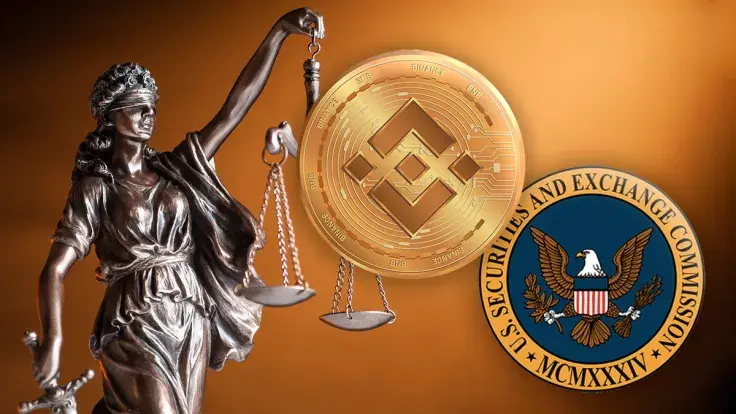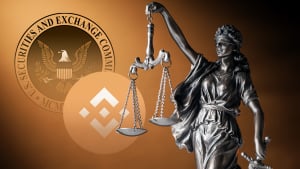
Disclaimer: The opinions expressed by our writers are their own and do not represent the views of U.Today. The financial and market information provided on U.Today is intended for informational purposes only. U.Today is not liable for any financial losses incurred while trading cryptocurrencies. Conduct your own research by contacting financial experts before making any investment decisions. We believe that all content is accurate as of the date of publication, but certain offers mentioned may no longer be available.
In the latest update, as regards the Binance lawsuit, the SEC has filed its opposition to Binance's Motion to Dismiss. Former SEC enforcement officer John Reed Stark draws attention to new developments on the X platform (formerly Twitter).
Binance and its Chief Executive Officer Changpeng "CZ" Zhao filed court documents in September seeking to have the U.S. Securities and Exchange Commission's complaint against them dismissed. Binance and Zhao argued in their lawsuit that the agency exceeded its power by suing them.
In September, the U.S. Securities and Exchange Commission (SEC) faced a setback in the lawsuit when it was unable to obtain permission to investigate Binance.US's software. The SEC had noted that it has been unable to obtain information from Binance.US since it sued the American exchange, its international partner Binance Holdings and its CEO Changpeng Zhao in June.
In its new filing, the SEC cites reasons why the court should deny Binance's motion to dismiss, including violations of securities laws and alleged manipulation of the Howey test.
The SEC claims Binance marketed and sold BUSD as an investment contract, while Binance claims BUSD was not offered as an investment contract because there is no possibility of profit. After all, its value is expected to remain at $1.
The SEC also cited that the Binance defendants relied on the Ripple finding, which determined that certain "blind bid/ask transaction sales "did not involve securities since the buyers could not have known whether their payments of money went to Ripple or any other seller of XRP."

 Vladislav Sopov
Vladislav Sopov Dan Burgin
Dan Burgin